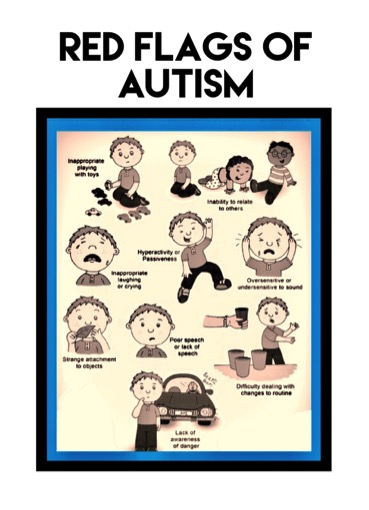I often get asked from friends, other parents, or concerned family members. What is autism? I have concerns with the development of my child, and I am not sure how to rule it out.
If you suspect your child has autism (a developmental disorder characterized by difficulty with social skills, communication, and behavior), you can find information from various resources. Seek out professionals who can help you.
If you are asking yourself this question, chances are there is a need to pursue help. Explore testing or assessments by a specialist. The one thing I can say as a parent having had this concern is listen to the voice inside you because it’s usually right. I’m sharing a few basic comadre tips from my own experience to help you.
- It’s important to monitor how your child is developing.
Child development can be a clear indicator of what your next steps should be. Let’s start with the age of the child. If your child isn’t school aged, you might want to begin with your pediatrician. Often your pediatrician will provide you with information on the ages and stages of child development with a chart or he/she may refer you to the Center For Disease Control Website. Here is the direct link. CDC Website for Developmental Milestones by age.
- You can also take a look at this online screening tool the M-CHAT.
The checklist doesn’t diagnose autism spectrum disorder (ASD). Rather, a high score indicates that a child should be referred for full diagnostic testing.
- Ask your pediatrician for a referral to the regional center or call the intake line for early intervention program. Early Intervention services are most effective when they are started before the child turns three.
Complete List of Regional Centers in CA
California has 21 regional centers throughout the state that serve individuals with developmental disabilities and their families. Regional centers are nonprofit private corporations that contract with the Department of Developmental Services to provide or coordinate services and support for individuals with developmental disabilities.
- What if my child is school aged (age three and up)? How to I request help from my school district?
There is an F.A.Q. (Frequently Asked Questions) you can download for more information.
- Make a request for an assessment in writing.
There are five basic steps in the special education process: (1) Referral for Assessment; (2) Assessment; (3) The Individualized Education Program (IEP) Meeting; (4) Determination; and (5) IEP Review.
You can learn more information about what the process is and what to expect from on the following links:
- Are there any local agencies I can connect with for support?
- Yes, you can start with La Comadre. I also wrote a blog that might be help you: The Stew of Special Needs Education: Indispensable Basics for Every Caregiver
- Here is a short list of local organizations you can connect with for support, information or training:
The Autism Society Los Angeles, Foothill Autism Alliance, Special Needs Network, Team of Advocates for Special Kids, Autism Speaks, Public Council, Disability Rights California, Disability Rights Legal Center, Learning Rights Law Center, Parents Place FRC, Fiesta Educativa, and La Comadre.
- Find a local support group
I know this might be challenging for some of you given your schedules. But you have options, whether it be in person or online. Nowadays you can even find support groups on Facebook.


Kameena
This is so well written and easy to understand. Thank you for adding all of the resource links. It really helps! Thank you.